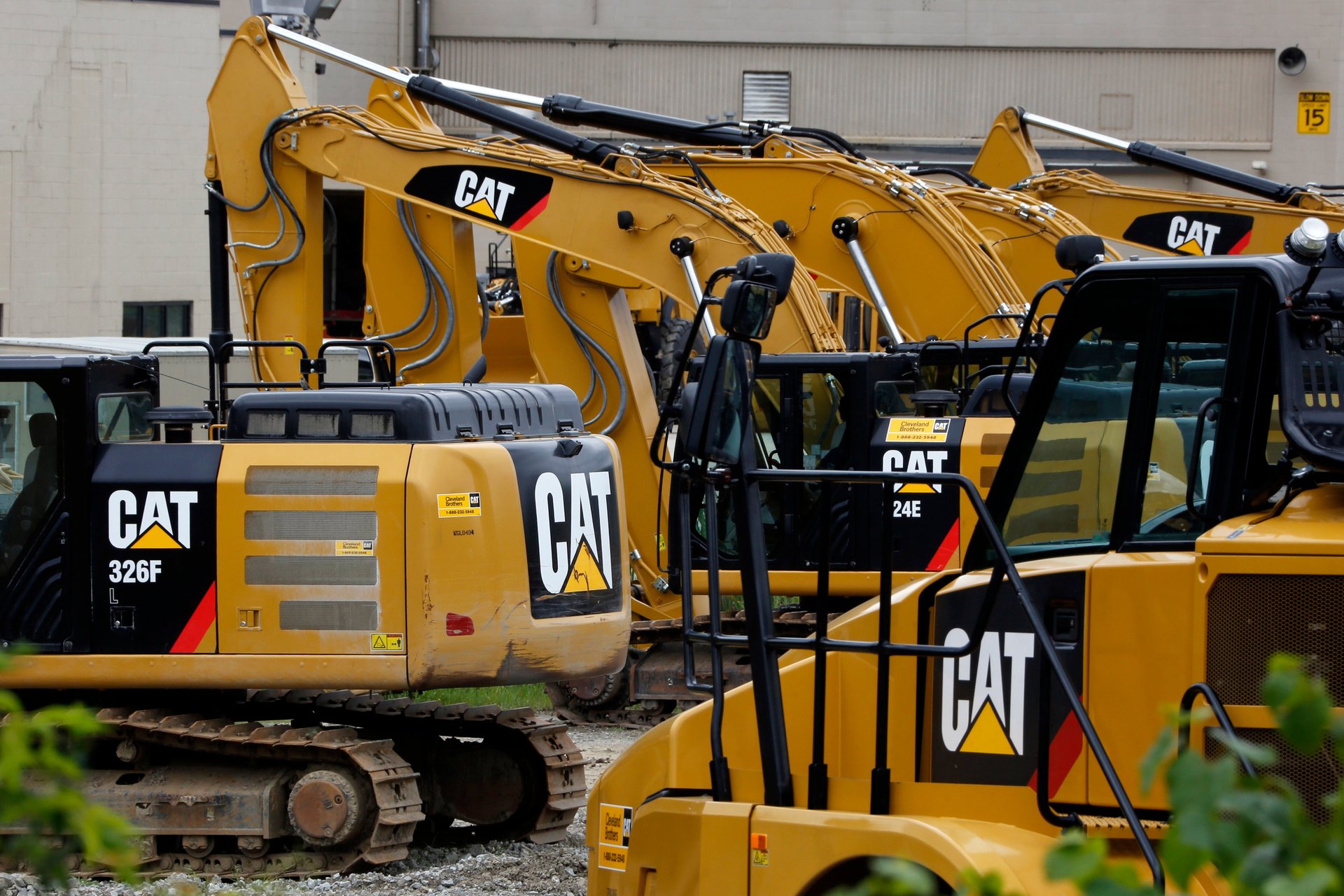China’s slowdown has taken a big chunk out of Caterpillar’s earnings
Where Caterpillar goes, others follow.


Where Caterpillar goes, others follow.
And that’s the worry, after the manufacturer and bellwether today posted earnings for the fourth-quarter of last year some 14.5% below expectations. In response, Caterpillar’s stock plummeted 9% today (Jan. 28), and helped drag the Dow down 380 points, while the S&P 500 and the Nasdaq tumbled 1.4% and 1.7%, respectively.
That’s not to say that Caterpillar’s earnings are all that bad—the company said it still expected its 2019 profit to increase to between $11.75 and $12.75 a share, on the lower end of previous analyst expectations of $12.73 a share. Net profit for the final quarter of last year was around $1 billion, after a loss of nearly $1.3 billion in the same quarter a year earlier.
Fourth-quarter revenue exceeded expectations, too—just. But expectations for the year to come are low: after last year’s superlative figures, where revenue increased by 20% (paywall), 2019’s modest increases seem all but certain disappoint in comparison.
Analysts and the company alike are pointing to slowing demand in China as an explanation. Roughly 10% of Caterpillar’s sales come from China. Meanwhile, five months of US tariffs on goods such as steel and aluminum have already cost the company just over $100 million. In 2019, it expects those costs to exceed $200 million.
But there are bigger problems. Whispers about a forthcoming economic “winter” in China have sent domestic customers scurrying from the high street. As the Guardian reports, Chinese shoppers are swapping iPhones for cheaper Chinese alternatives, holding back on Swiss watches, and opting not to travel. Car sales are at their lowest in decades, with Ford Motor Co. posting a loss of $534 million in China last quarter. Residential property prices have taken yet another hit (paywall). The country’s 6.6% growth in 2018 was the slowest in almost three decades—the forecast for 2019 is even gloomier, though both are more than twice the global rate. Speaking in Davos, Switzerland, last week, Volkswagen CEO Herbert Diess described the country as “under threat, for sure. This year will be challenging.”
If the slowdown continues at the same rate, companies such as Caterpillar should be able to weather the storms. But if it accelerates, exacerbated by falling consumer confidence, we may see more worrying global repercussions. China’s mounting government, corporate and household debt is yet another concern that hangs in the balance.